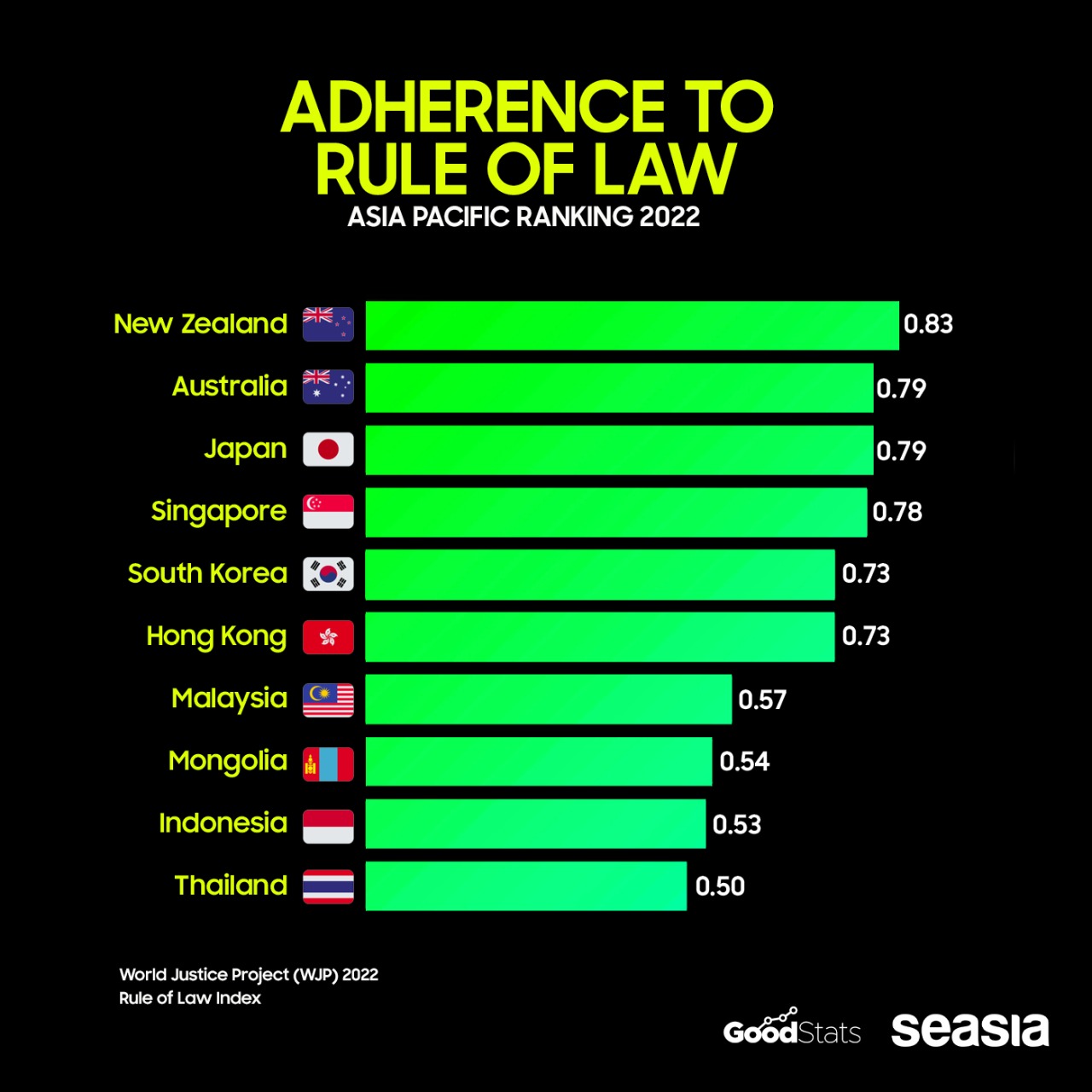The 2022 Rule of Law Index was published by the World Justice Project (WJP). The majority of nations saw a fall in the rule of law for the fifth year in a row. 85 of the 140 nations, or 61 percent and 4.4 billion people, experienced a decrease in the rule of law. A total of 52 nations, or 39%, experienced improvement.
Eight aspects of society are measured by the index: civil and criminal justice, regulatory enforcement, open government, fundamental rights, order and security, and restrictions on governmental power. Each major area is further explored by 44 sub-factors, such as labor rights and due process of law.
According to the World Justice Project's study of detailed survey data from 140 nations and jurisdictions, this year saw a decline in the rule of law in 61% of those nations.
“Authoritarian trends that predate the pandemic continue to erode the rule of law,” said Elizabeth Andersen, executive director of the World Justice Project (WJP).
Rule of Law Index Co-Director Alicia Evangelides believes that three primary issues were responsible for this year's total drop. In 58 percent of nations, checks on governmental power have been lost; in 61 percent of nations, civil justice systems have become less effective because of delays and systemic discrimination; and in 66 percent of nations, fundamental rights are no longer respected.

Fundamental rights have decreased more than any other element since 2015, with declines seen in 76 percent of nations. Evangelides blamed authoritarian tendencies in areas like freedom of association and expression for this deterioration.
In the East Asia and Pacific area, Singapore continued to rank fourth out of 15 nations and territories and 17th overall.
Singapore received a top 10 ranking globally in each of the following five categories: lack of corruption, peace and security, regulatory enforcement, criminal justice, and civil justice.
The Republic moved up two spots to 30th place in terms of restrictions on government power, one space to 35th place in terms of government transparency, and one spot to 39th place in terms of fundamental rights.
Singapore's overall index score in 2022 was 0.78, a little decline from 2021 of less than 1%. Since achieving a 0.81 in 2015, its performance has remained largely steady.
The decreases from the previous year, meanwhile, are less severe and pervasive than those from 2021, when Covid-19 shutdowns severely disturbed the legal system and restricted civil rights.
The respect for fundamental rights decreased in two-thirds of the countries, while checks on government power decreased in 58 percent of them, according to the 2022 report.
The epidemic was still one of the main causes of the global declines in 2022. In 61 percent of the countries, the civil justice system's performance scores declined, primarily as a result of injustice and discrimination.
Source: WorldJusticeProject.org, StraitsTimes.com, Jurist.org


















